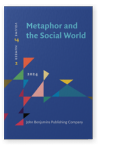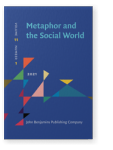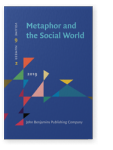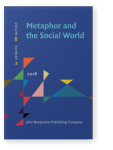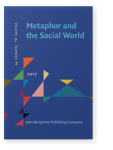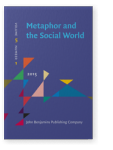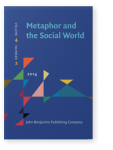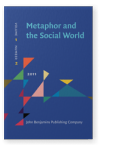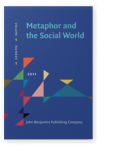David Ritchie
List of John Benjamins publications for which David Ritchie plays a role.
Journal
2021 The “thinking meme” meme: P erson and organism metaphors in Daniel Dennett’s theory of cultural evolution Metaphor and the Social World 11:1, pp. 121–142 | Article
After a brief flurry of attention following its introduction by Dawkins (1976), the concept of memes has largely disappeared from mainstream social and cognitive science discourse. A significant exception is Dennett’s (1995; 2017) writings on the philosophy of mind. In his most recent book,… read more
2019 Reclaiming a unified American narrative: Lexical, grammatical, and story metaphors in a discussion of polarized identities Metaphor and the Social World 9:2, pp. 242–262 | Article
As part of an on-going project to apply metaphor analysis to understanding the cultural polarization that has recently obstructed discourse about political and cultural issues in both the United States and Europe, this essay examines the lexical, grammatical, and story metaphors in a recent… read more
2018 Rhetorical confinement, contrasting metaphors, and cultural polarities: “Yes we can” meets “Carnage in the cities” Metaphor and the Social World 8:2, pp. 247–266 | Article
In this study we contrast metaphors and metaphorical stories in President Trump’s 2017 inaugural address with those of former President Barack Obama’s first inaugural address. We draw on the concept of ‘rhetorical confinement’ (Patterson, 2011) to show how the contrasting life trajectories of… read more
2017 A note about meta-metaphors: Considering the theoretical implications of terms used to discuss metaphor Metaphor and the Social World 7:2, pp. 291–299 | To be specified
Although it is difficult to avoid metaphorical language in discussing and theorizing about communication, language, and metaphor itself, the metaphors we use have entailments that may not be consistent with the analyses they are intended to support. This essay discusses and compares the… read more
2015 A “bright blue ball”, “brushed with clouds” or “parched, scorched, and washed away”? Barack Obama’s use of contrasting metaphors and stories in framing climate change Metaphor and the Social World 5:1, pp. 1–19 | Article
This paper examines President Barack Obama’s use of contrasting metaphors and metaphorical stories to frame the issue of climate change and the associated political controversies in a major policy speech at Georgetown University in 2013. One major theme in the speech contrasted a series of… read more
2014 “Now everyone knows I’m a serial killer”: Spontaneous intentionality in conversational metaphor and story-telling Metaphor and the Social World 4:2, pp. 174–198 | Article
Drawing on data from a series of informal conversations about public safety and police-community relations, we distinguish between a speaker’s generalized communicative intentions with respect to metaphor use and story-telling, based on what Chafe (1994, p. 145) calls “unifying ideas that persist… read more
2011 Why the block is the block: Reinforcing community through casual conversation Metaphor and the Social World 1:2, pp. 239–260 | Article
This study combines Discourse Dynamics (Cameron, 2007) with Perceptual Simulation Theory (Barsalou, 2007; Gibbs, 2006), to analyze a sample of talk among residents of an urban neighborhood about topics related to community safety and the quality of life in their community. The results demonstrate… read more
2011 Justice is blind: A model for analyzing metaphor transformations and narratives in actual discourse Metaphor and the Social World 1:1, pp. 70–89 | Article
In this article I present a model of how metaphors are transformed and re-presented as narratives, how this process helps shape communicative interactions, and how it contributes to relevance effects and the generation of meaning, often by simultaneously affecting multiple cognitive contexts. I… read more
